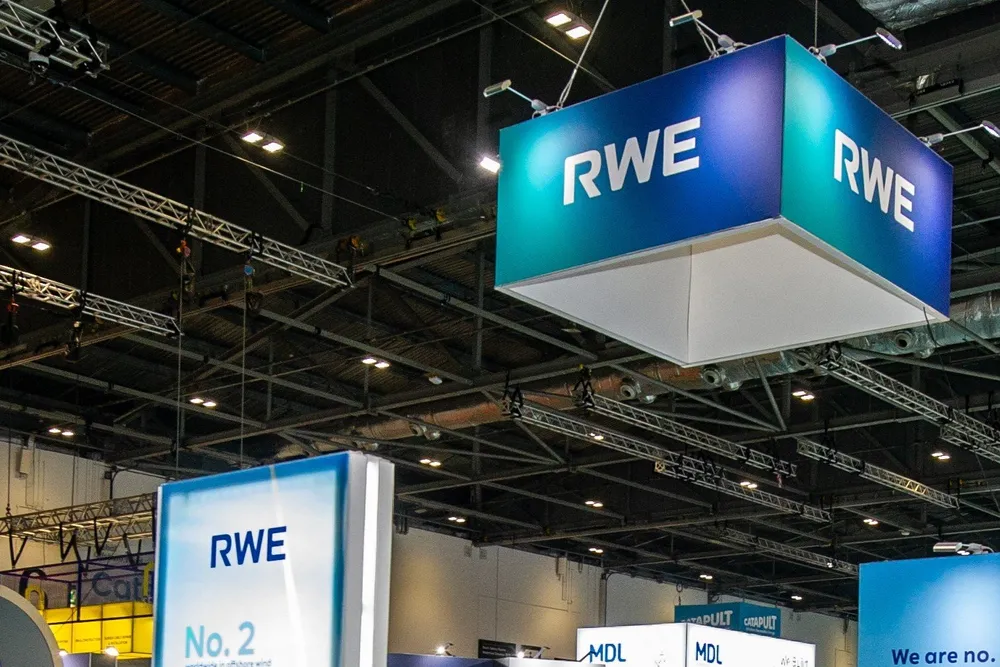RWE attacks Orsted, Equinor and Iberdrola over double standards
German utility goes on offensive against fellow offshore wind heavyweights over double-standards in row over inter-farm wake effects

RWE has charged Orsted, Equinor and Iberdrola with hypocrisy in an escalating row between the offshore wind heavyweights over wind wakes that it is claimed could result in losses of almost £1bn ($1.4bn) across several major projects.
The German power giant has found itself at the centre of several wake loss disputes concerning projects it is developing in the UK that have been playing out in planning proceedings.
Perhaps the most significant dispute – with over 12GW of offshore wind capacity affected – has centred on its 3GW Dogger Bank South project in the North Sea, which counts Emirati renewables giant Masdar as a minority shareholder.
British developer SSE and Norwegian oil major Equinor have intervened in the proceedings on behalf of their three Dogger Bank arrays totalling 3.6GW. Denmark’s Orsted has also intervened in the process on behalf of its Hornsea 1, 2 and 3 wind farms – totalling around 5.4GW of capacity.
In an updated wake loss assessment, SSE and Equinor now claim their Dogger Bank sites could suffer up to £669m in wake losses over their lifetime at the hands of Dogger Bank South. Orsted argues that its Hornsea sites, which are further away, could face losses of up to £295m.
Together, that amounts to potential losses of up to a staggering £964m – albeit these are upper estimates and the figures are hotly contested by RWE. Whatever the precise figures, the developers are demanding that RWE mitigate these losses through mitigation, compensation or both.
What are wind wakes?
Wind turbines extract kinetic energy from the air to produce electricity. When they do this, they leave trails of slower and more turbulent wind stretching behind them. These trails, known as wind wakes, can stretch vast distances – even 100km. If one wind farm is caught in the ‘shadow’ of another’s wake, the slower wind speed will mean it generates less power. One wind farm ‘waking’ another is sometimes colloquially called ‘wind theft’.
There are also “major questions of fairness, consistency and credibility” that energy secretary Ed Miliband must take into account in his decision, said RWE.
‘Consistency’ was perhaps a nice word for highlighting what RWE went on to argue, albeit without using the word, was rank hypocrisy from its fellow offshore wind giants over wake losses.
“To pick some examples,” said RWE, it highlighted the case of Iberdrola subsidiary ScottishPower, which is demanding the German utility mitigate or compensate wake losses that its Five Estuaries project will have on the British developer’s East Anglia 2 project.
ScottishPower is not, however, “offering to compensate for its impact” on the operational Galloper and Greater Gabbard wind farms, owned in whole or in part by RWE, noted the German utility.
“How could this be right or lawfully imposed?”
RWE next focused on Equinor, a 40% shareholder in the Dogger Bank sites, which has also recently won approval for its Sheringham and Dudgeon Extension projects.
Equinor is demanding mitigation or compensation for those projects from a planned TotalEnergies project nearby, noted RWE. But Equinor did not offer this to Orsted for the impact its two extension projects could have on the Danish developer’s existing Race Bank wind farm just 10km away, said RWE. During the planning proceeding for the extensions, it noted there was “no mention of wake effects, nor a wake assessment.”
Turning its ire to Orsted, RWE noted that the developer raised no wake loss objections to the two Equinor extension projects on behalf of its Race Bank site. Likewise, it said Orsted did not provide a wake assessment for the impact its Hornsea 4 project would have on the Dogger Bank projects.
“What is [Miliband] to make of this stark inconsistency? How credible is Orsted’s claim for financial compensation... in these circumstances?”
There were allegations of hypocrisy all round, however. Orsted in its submission highlighted a reported instance in 2011 when RWE “raised concerns” regarding potential wind wakes stretching from the Danish developer’s then-planned Burbo Bank offshore wind farm onto the German utility’s Gwynt y Môr site.
Orsted also called RWE “disingenuous” for suggesting the reason it had delayed carrying out a wake loss assessment until deep into the planning proceeding was that it did not believe any “reasonable” mitigation could be employed. RWE had long insisted that it felt it should not have to carry out any wake loss assessment.
And Orsted rebutted RWE’s claim that wake effects remain a “novel issue,” insisting that it has been “hotly contested” in all relevant examinations since a landmark 2023 decision – adding that “industry understanding regarding the true extent of far-field wake effects took a material leap forward between 2019 and 2021.”
For the time being, it’s firmly where developers remain.
(Copyright)